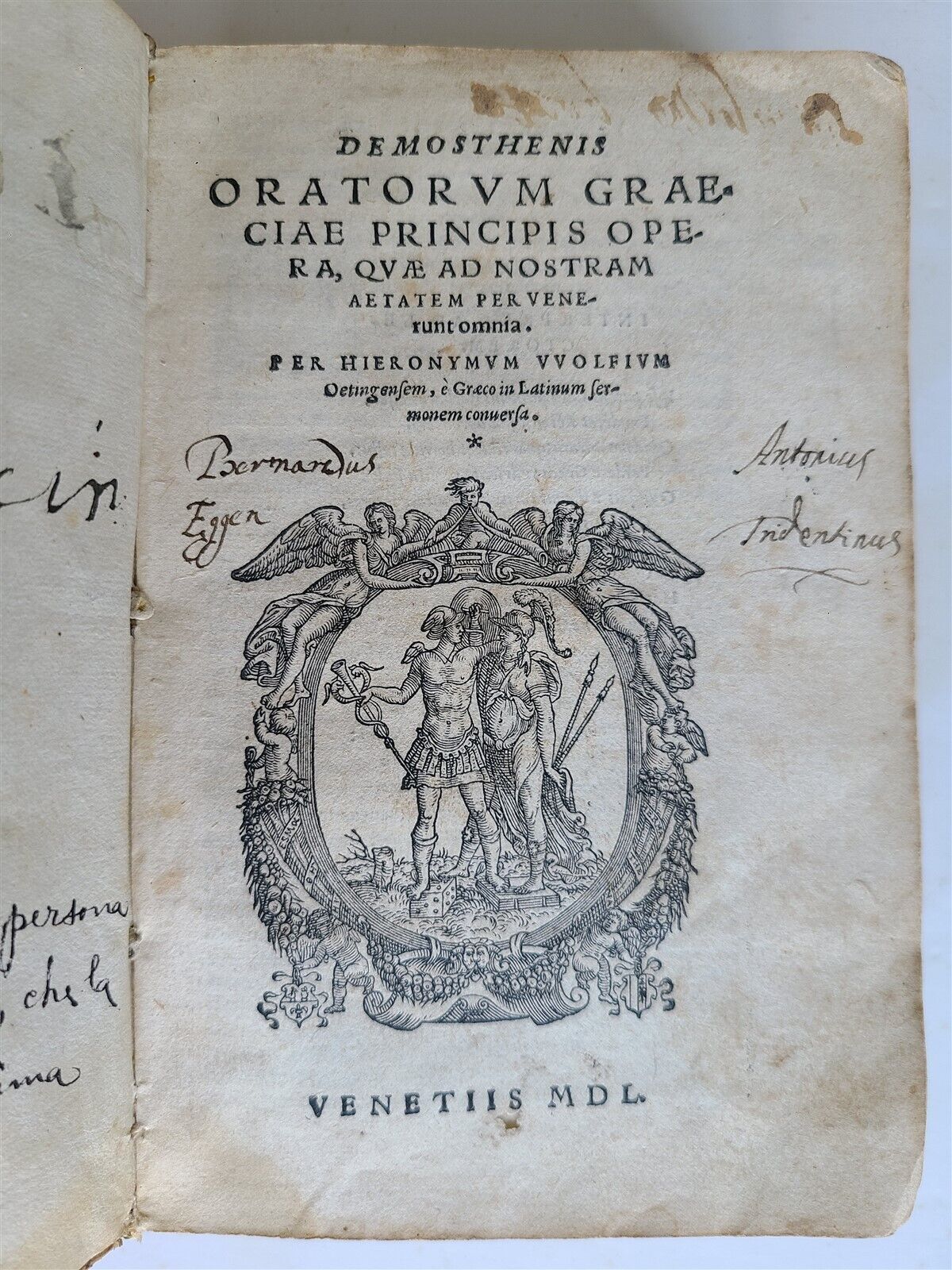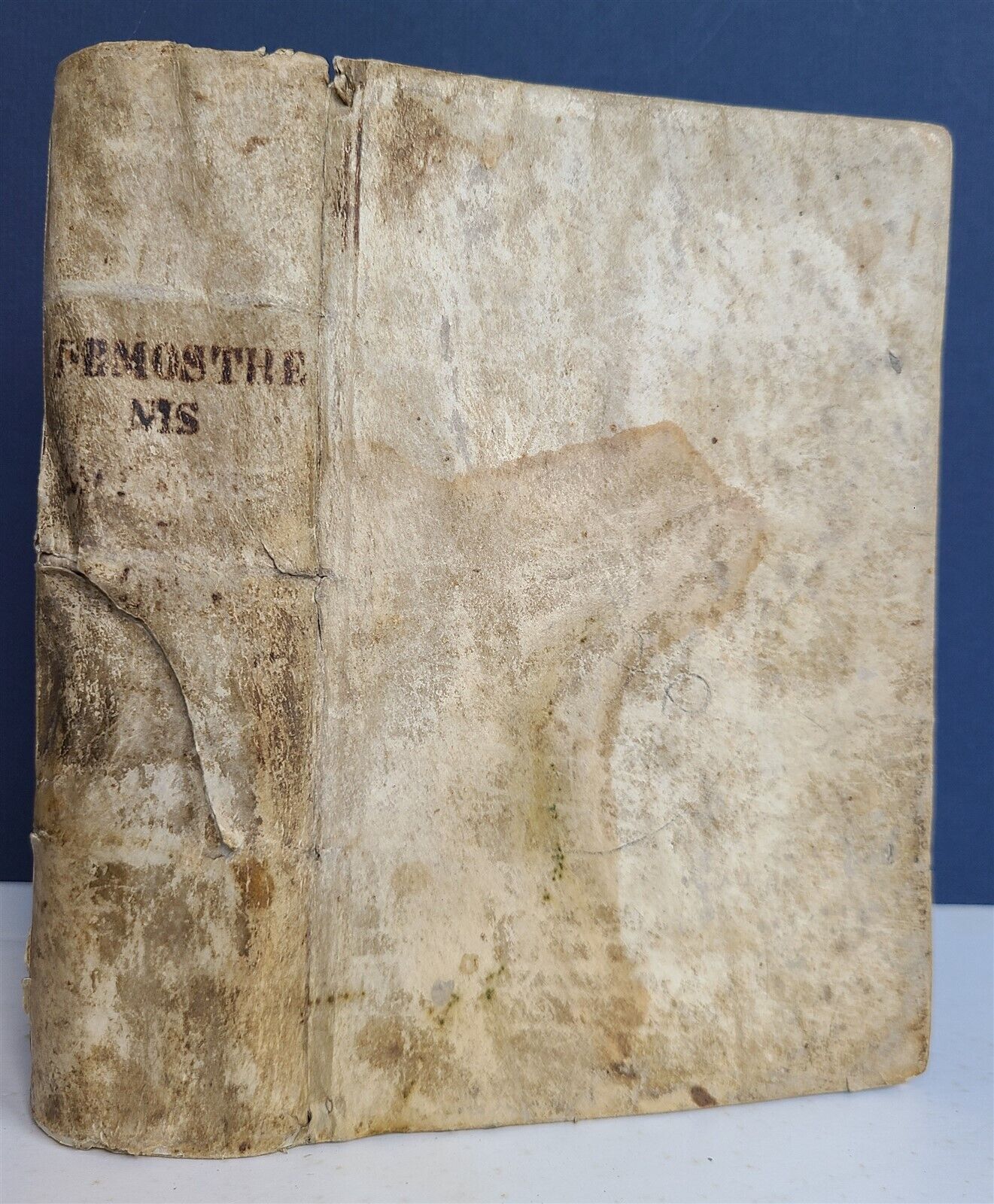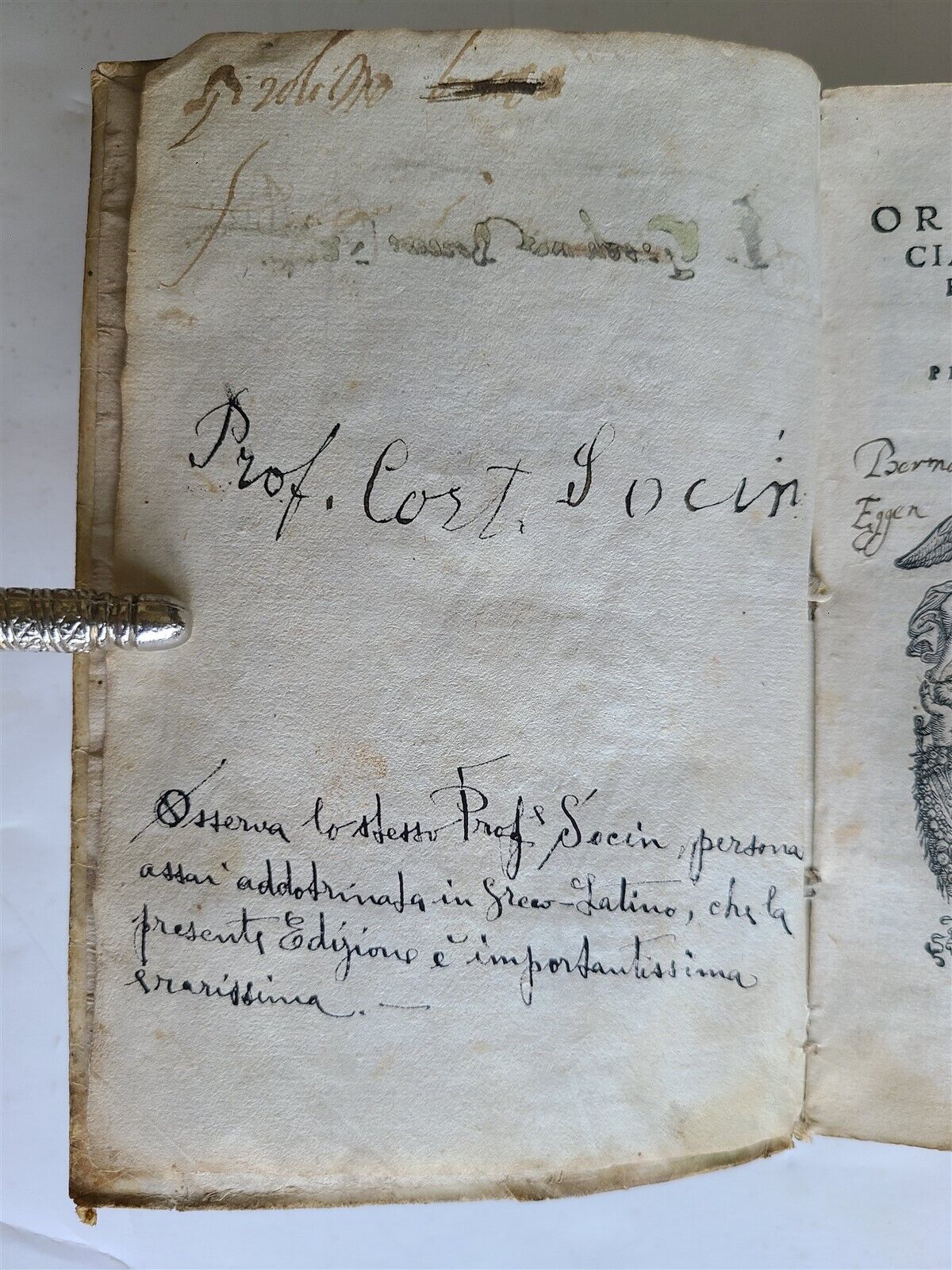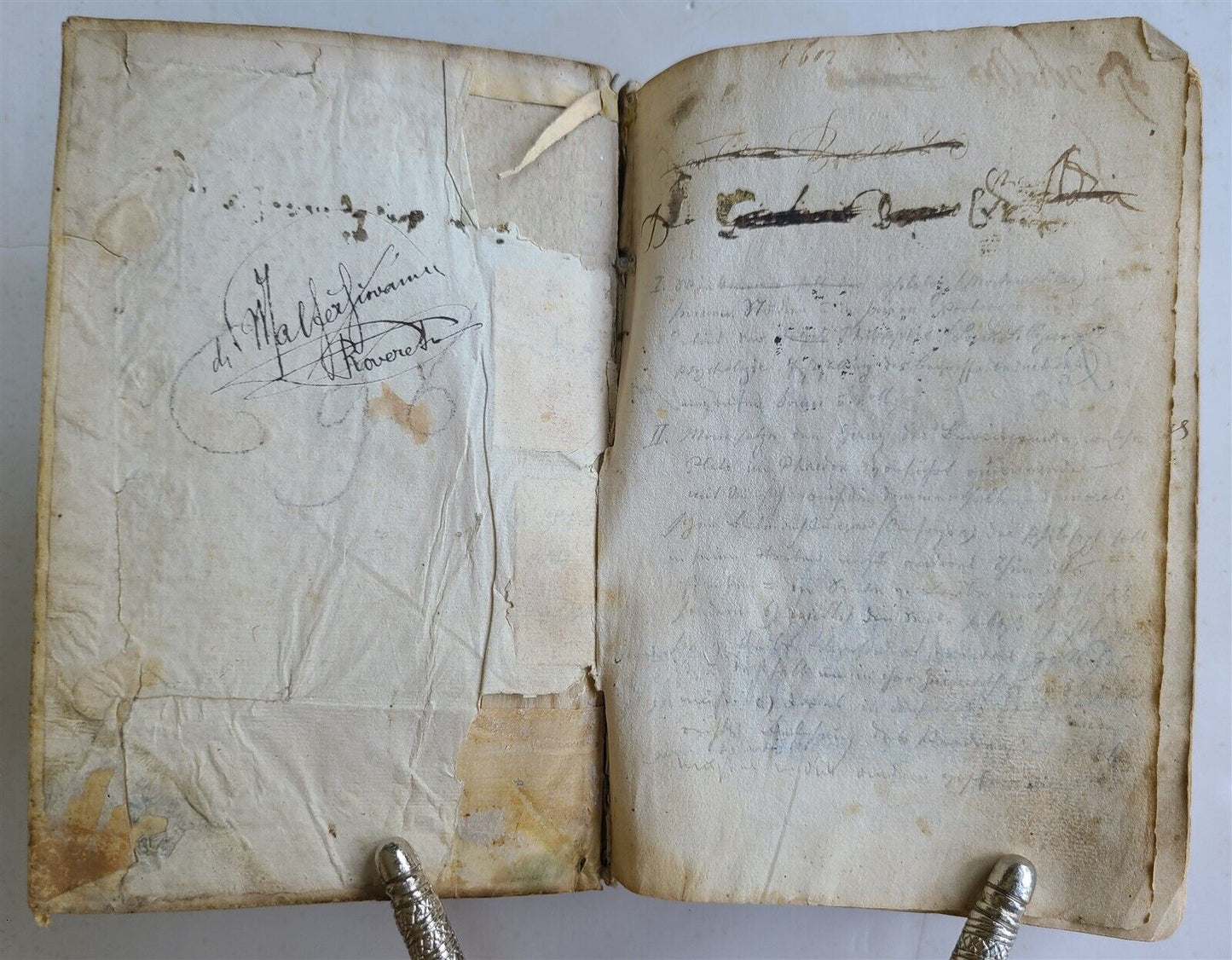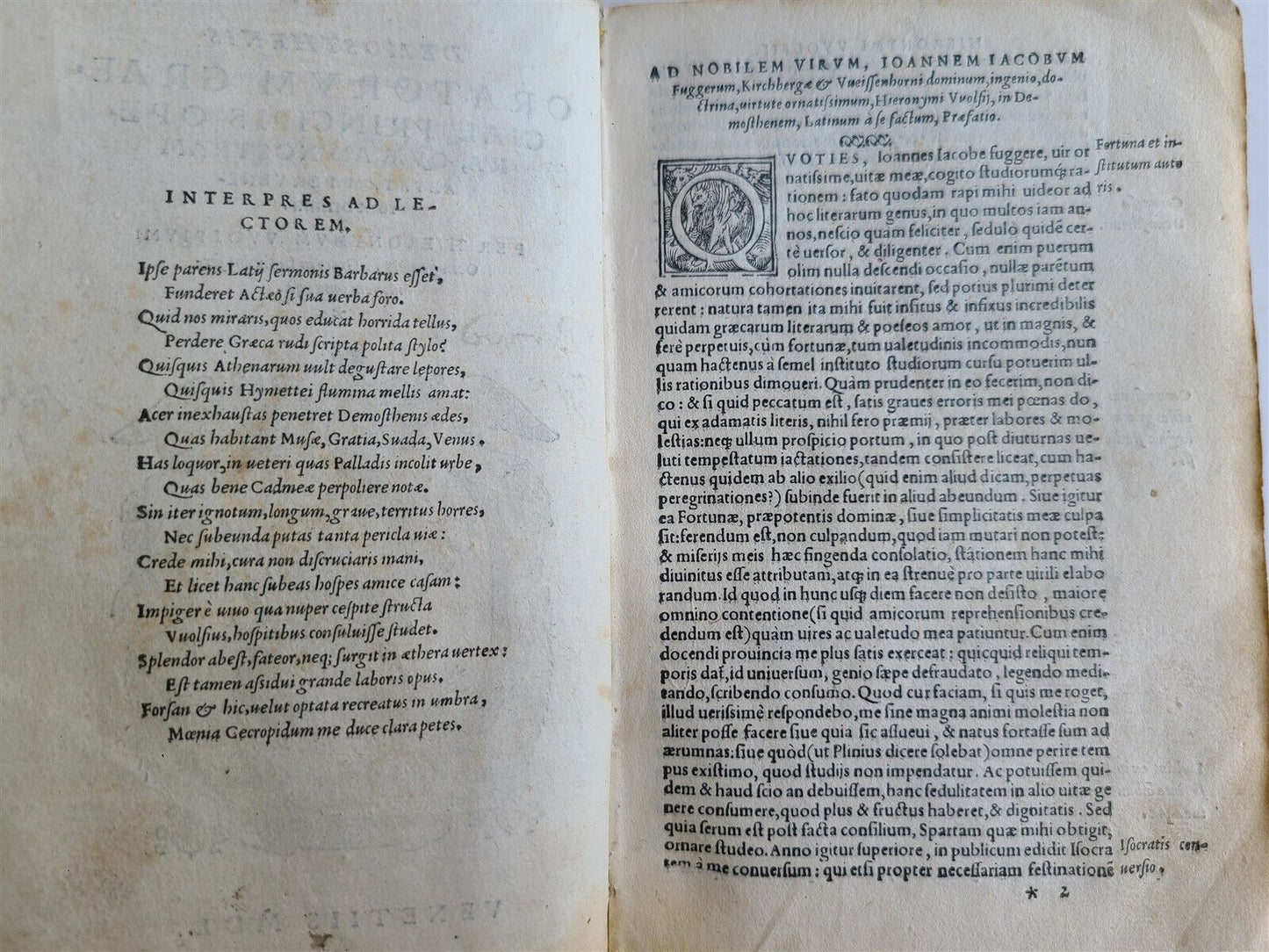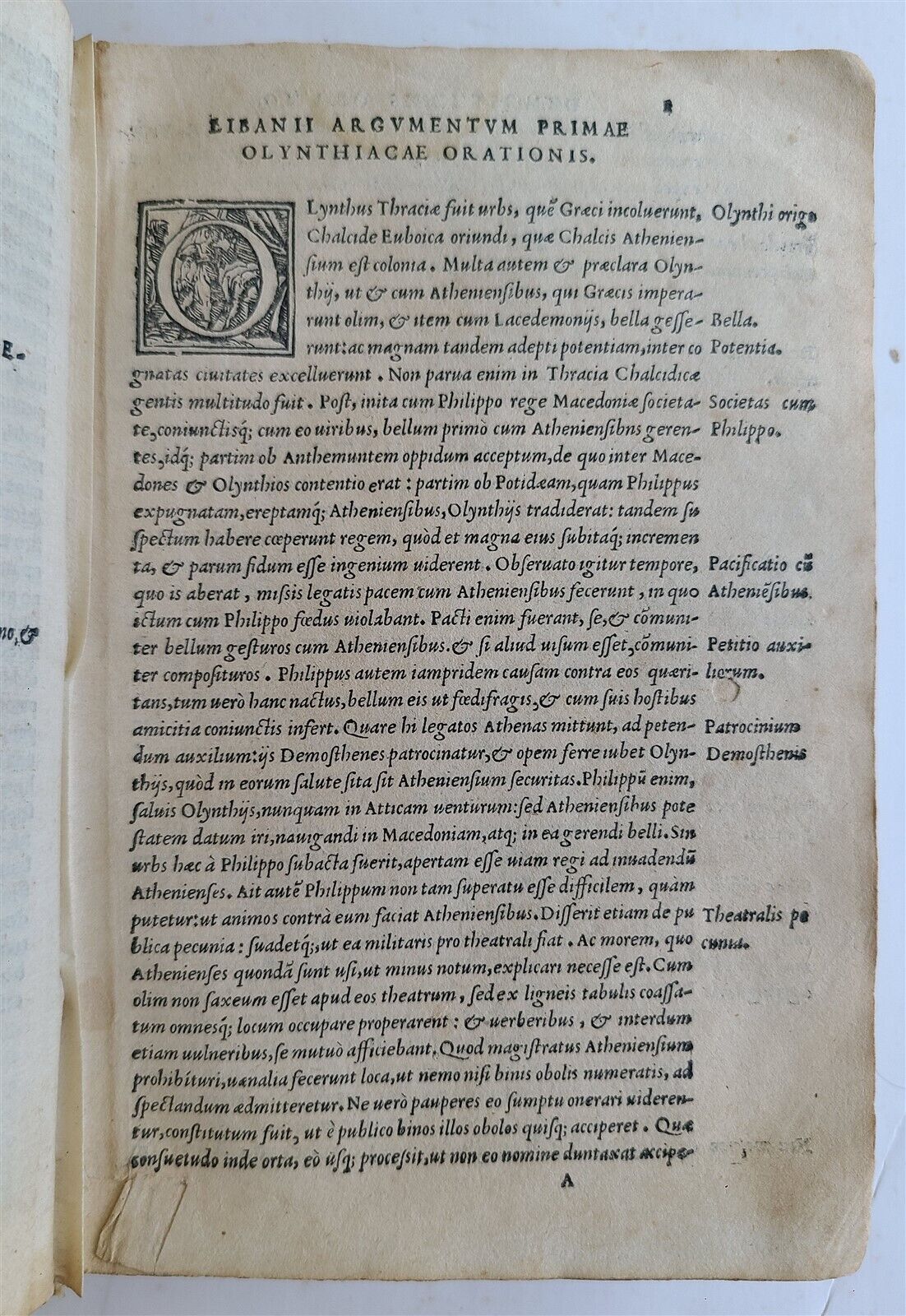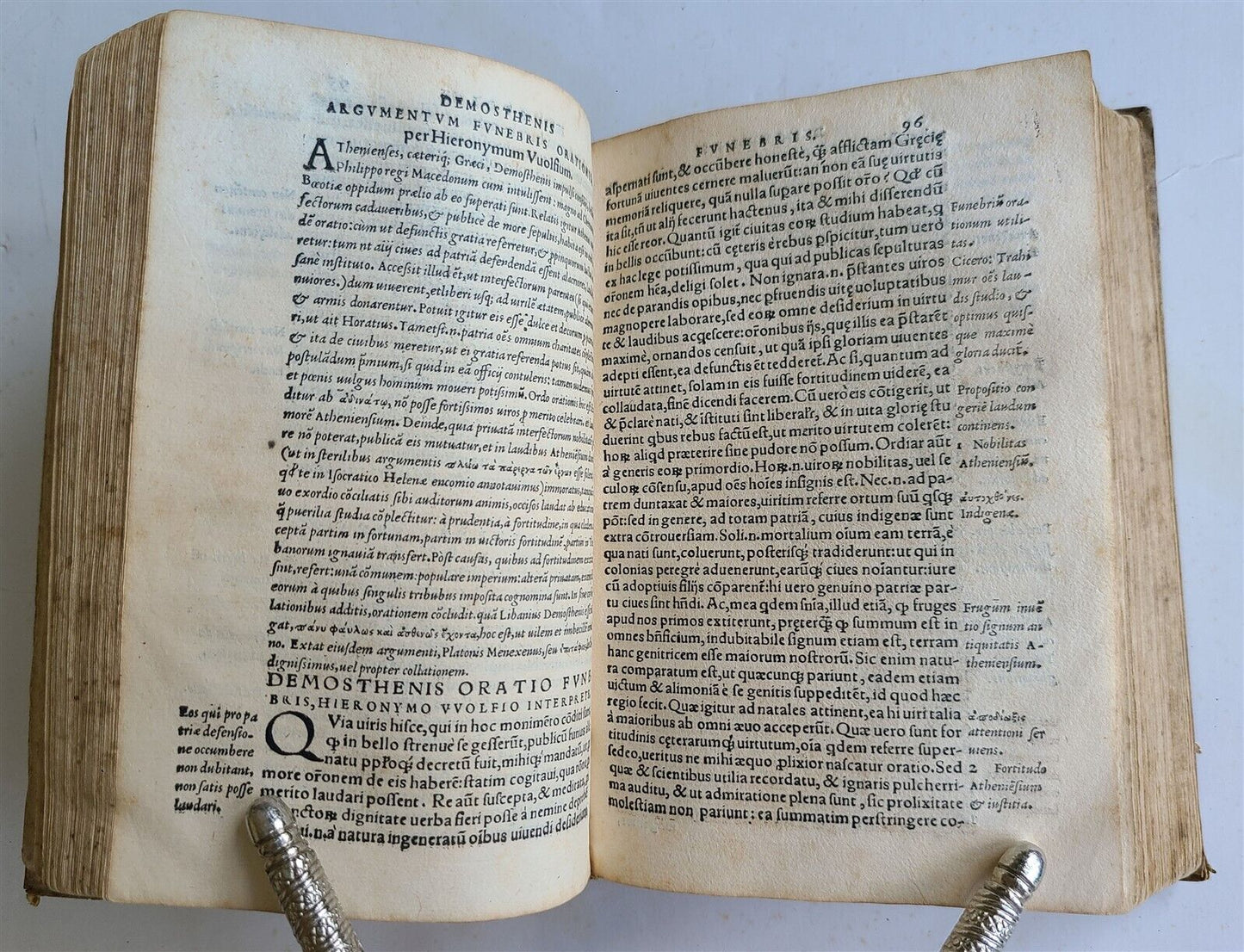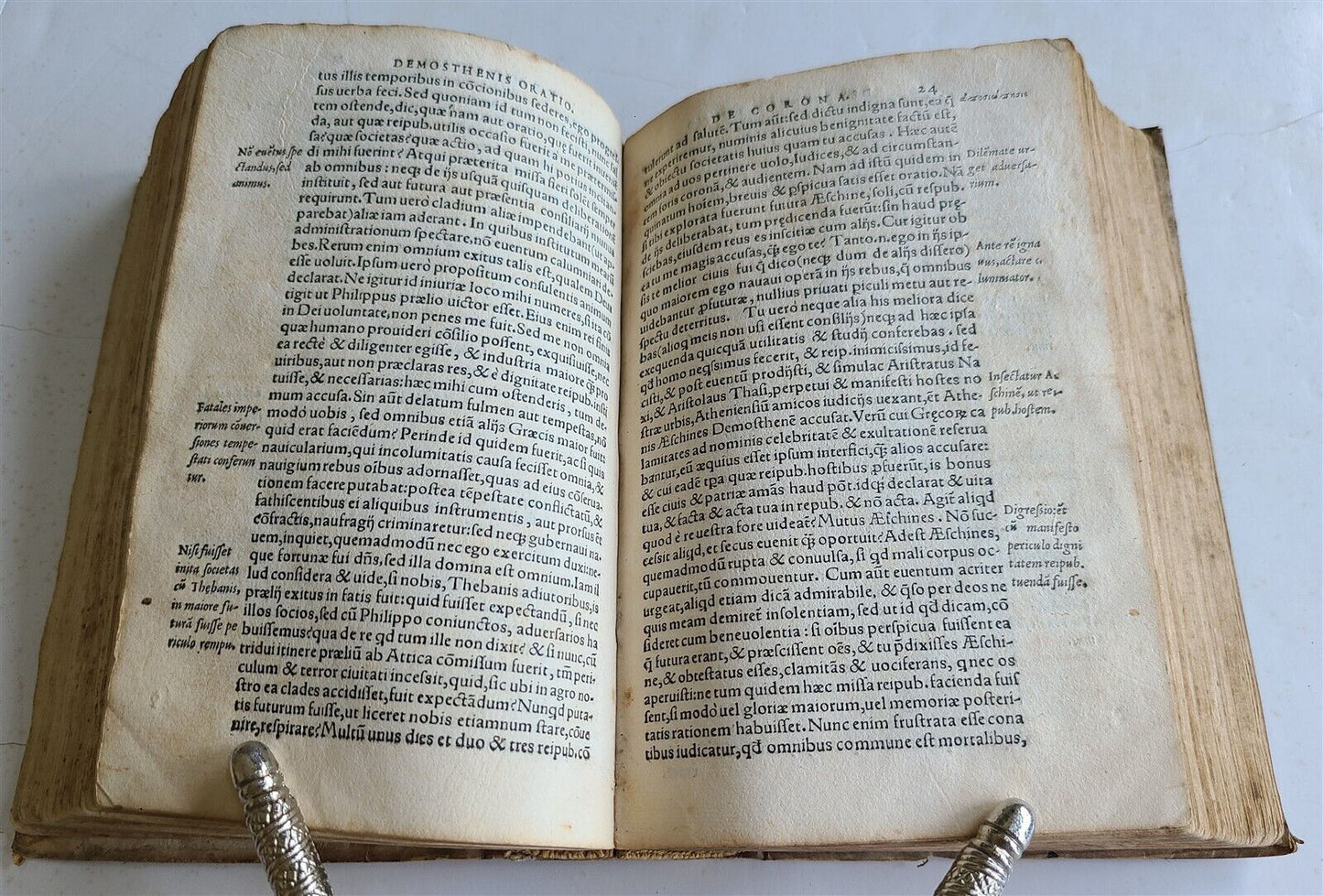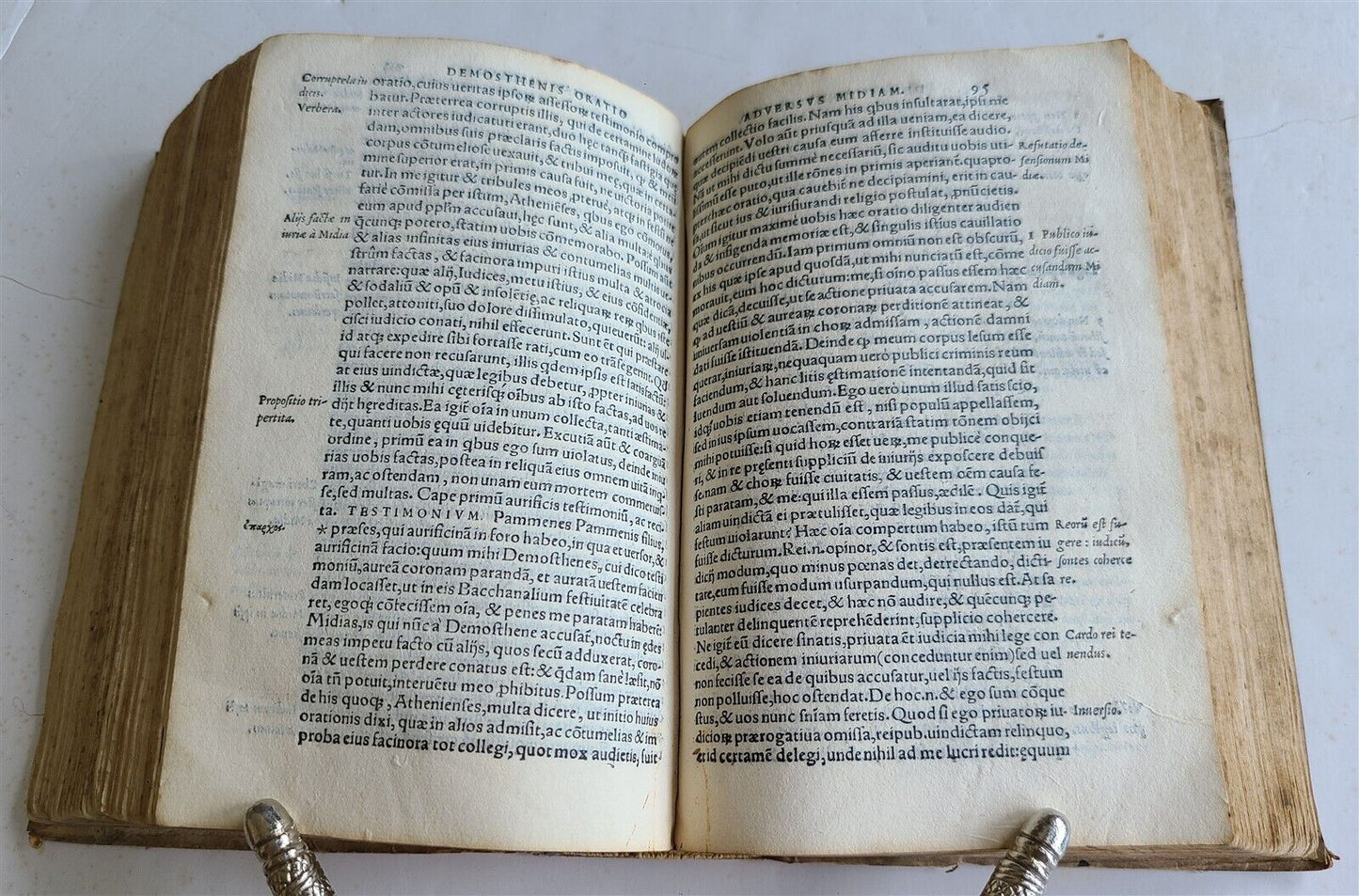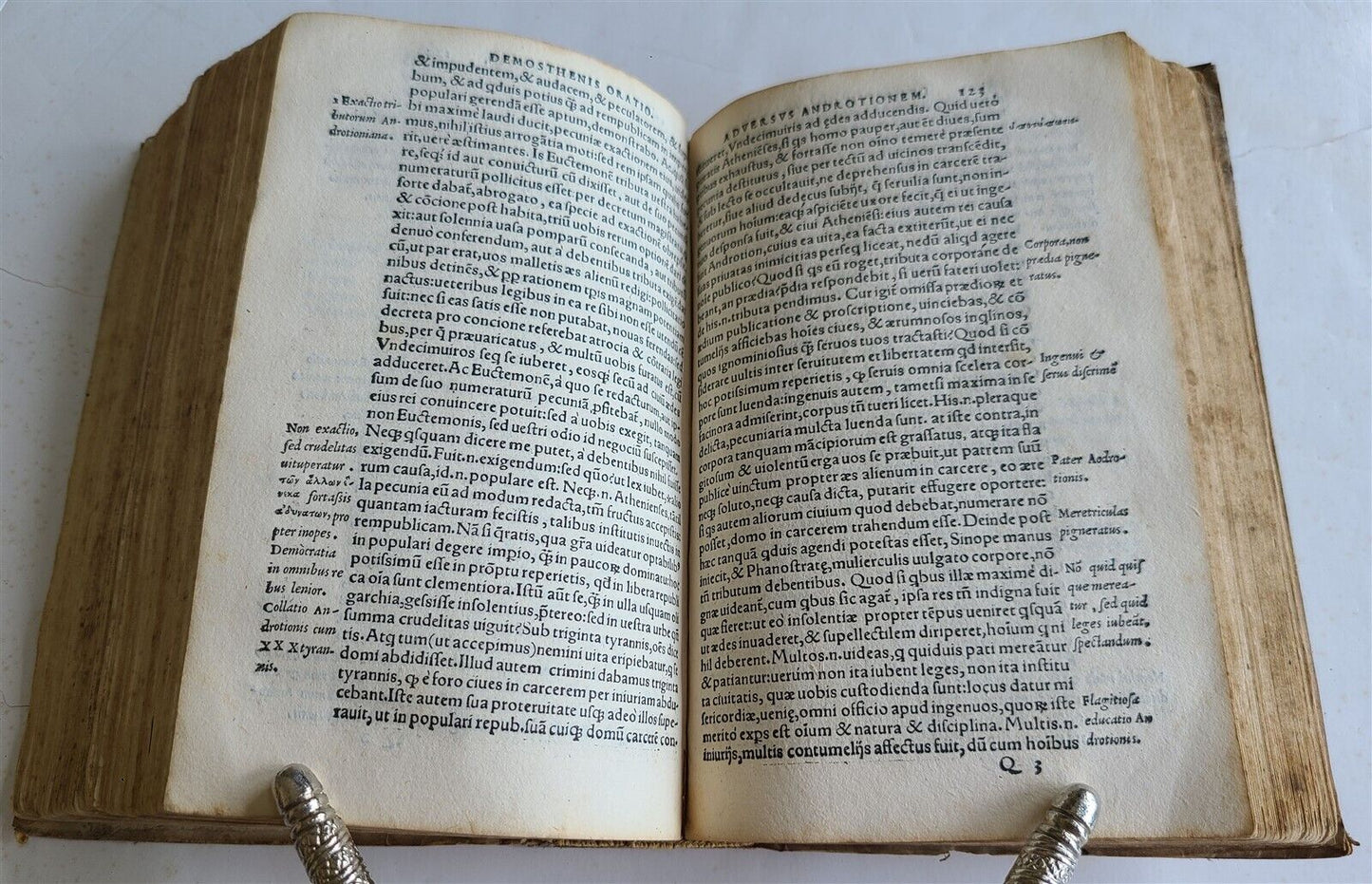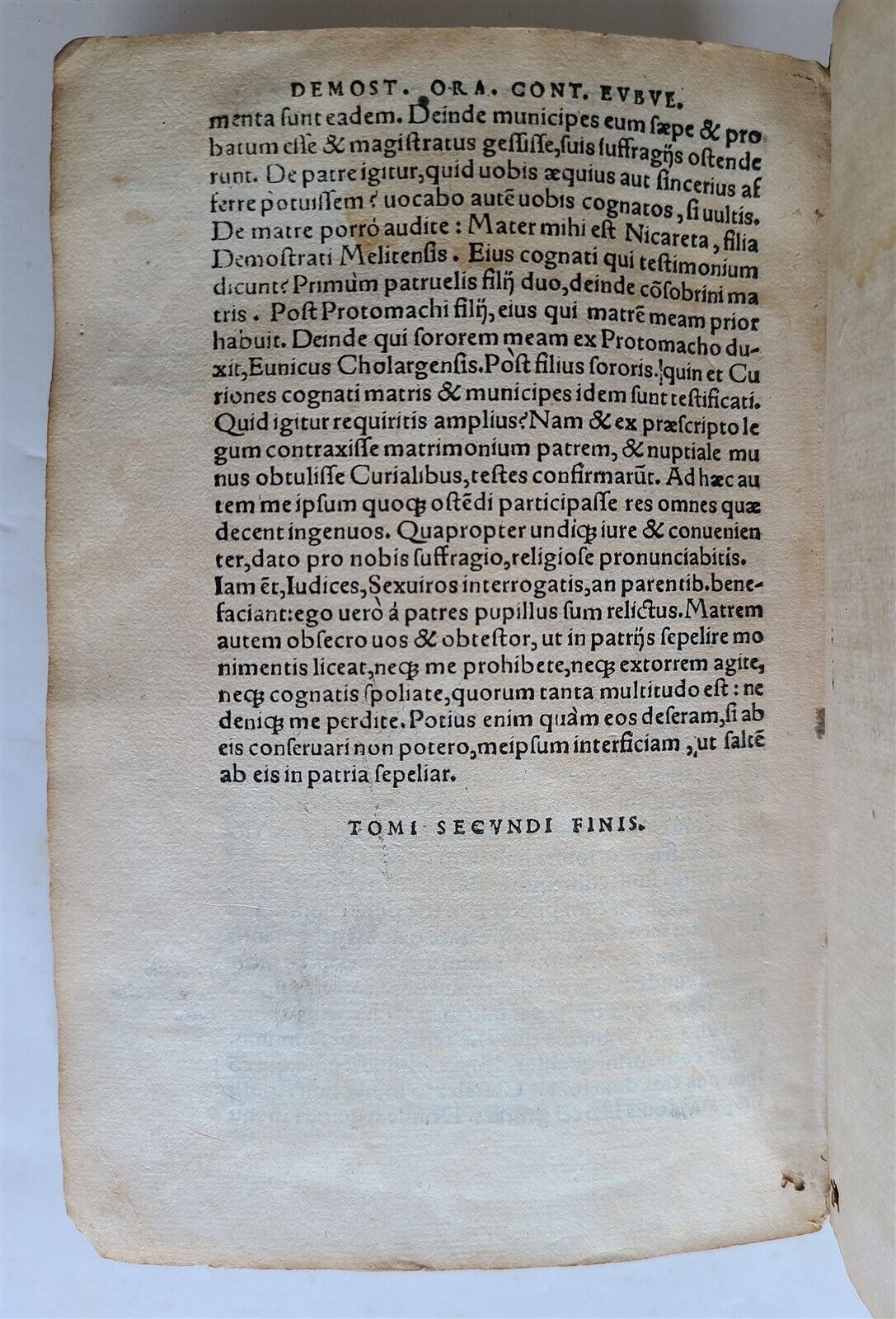Motka
1550 POLITICAL SPEECHES by DEMOSTHENES antique VELLUM BOUND rare
1550 POLITICAL SPEECHES by DEMOSTHENES antique VELLUM BOUND rare
Regular price
$499.80 USD
Regular price
$714.00 USD
Sale price
$499.80 USD
Unit price
per
Couldn't load pickup availability
img{max-width:100%}
Demosthenes.
Oratorum graeciae principis opera, quae ad nostram aetatem per venerunt omnia,
per H. Wolfium...
Vols. 1-2 in 1 volume
Venice, (Scoto); 1550
With woodcut printer's mark
8 lvs., 104 lvs., 214 lvs.
Original limp vellum with manuscript title to the spine
Vellum soiled, spine slightly damaged, lacks ties, very good interior
Rare edition.
Size : 4.5 by 7"
Text in Latin
=========================================
Demosthenes (384 – 322 BC) was a Greek statesman and orator in ancient Athens.
His orations constitute a significant expression of contemporary Athenian intellectual prowess and provide insight into the politics and culture of ancient Greece during the 4th century BC. Demosthenes learned rhetoric by studying the speeches of previous great orators. He delivered his first judicial speeches at the age of 20, in which he successfully argued that he should gain from his guardians what was left of his inheritance. For a time, Demosthenes made his living as a professional speechwriter (logographer) and a lawyer, writing speeches for use in private legal suits.
Demosthenes grew interested in politics during his time as a logographer, and in 354 BC he gave his first public political speeches. He went on to devote his most productive years to opposing Macedon's expansion. He idealized his city and strove throughout his life to restore Athens' supremacy and motivate his compatriots against Philip II of Macedon. He sought to preserve his city's freedom and to establish an alliance against Macedon, in an unsuccessful attempt to impede Philip's plans to expand his influence southward, conquering the Greek states.
After Philip's death, Demosthenes played a leading part in his city's uprising against the new king of Macedonia, Alexander the Great. However, his efforts failed, and the revolt was met with a harsh Macedonian reaction. To prevent a similar revolt against his own rule, Alexander's successor in this region, Antipater, sent his men to track Demosthenes down. Demosthenes killed himself to avoid being arrested by Archias of Thurii, Antipater's confidant.
The Alexandrian Canon, compiled by Aristophanes of Byzantium and Aristarchus of Samothrace, called Demosthenes one of the ten greatest Attic orators and logographers. Longinus likened Demosthenes to a blazing thunderbolt and argued that he had "perfected to the utmost the tone of lofty speech, living passions, copiousness, readiness, speed."
Quintilian extolled him as lex orandi ("the standard of oratory"). Cicero said of him that inter omnis unus excellat ("one exceeds among all"), and also praised him as "the perfect orator" who lacked nothing.
========================
Please see my other auctions
Thank You
Refund Policy: We will issue a FULL REFUND, 100% money back if you are not satisfied with your purchase. Items must be returned to us within 20 days in order to receive a refund or replacement. Buyer is responsible for shipping costs.
Powered by SixBit's eCommerce Solution
View full details
